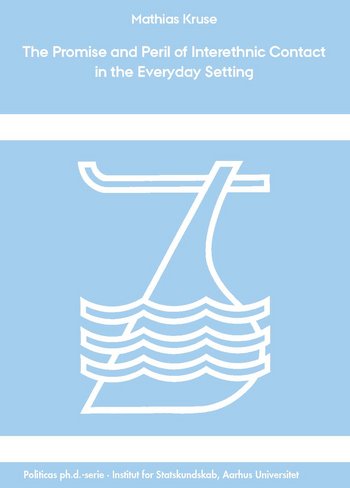Mathias Kruse
The Promise and Peril of Interethnic Contact in the Everyday Setting

What are the consequences of contact between members of different ethnic groups? Over the last decades, immigration has changed the ethnic composition in many industrialized democracies. These changes have spurred heated political debate and emphasized the importance of understanding the impact of the interethnic encounter. According to one of the most prominent social science theories, contact occurring under certain conditions reduces outgroup prejudice, thus offering promise rather than peril. In this dissertation, I build on this line of research. In contrast to prior work, however, I study the broader role of interethnic contact by focusing on contact occurring in the everyday setting and its consequences for a range of less studied phenomena. To do so, I turn to the school setting in Denmark and use objective measures of contact while relying on designs with high causal leverage. The dissertation reveals a paradoxical role of contact. On the one hand, I find that interethnic contact can increase intergroup solidarity and that stereotype-reducing information plausibly acquired via such contact diminishes ethnic bias in cooperation. On the other hand, interethnic contact reduces well-being and diminishes immigrants’ and descendants’ likelihood of acquiring citizenship. Thus, well-being and citizenship acquisition are fostered through interaction with ethnically similar rather than dissimilar peers. In synthesizing these findings, a new pattern emerges: Whereas interethnic contact in the everyday setting may promote interpersonal outcomes, the same contact seems to impede more intrapersonal outcomes. This trade-off has important implications for theories and policies related to integration and intergroup relations.
![]() Ophavsretten tilhører Politica. Materialet må ikke bruges eller distribueres i kommercielt øjemed.
Ophavsretten tilhører Politica. Materialet må ikke bruges eller distribueres i kommercielt øjemed.